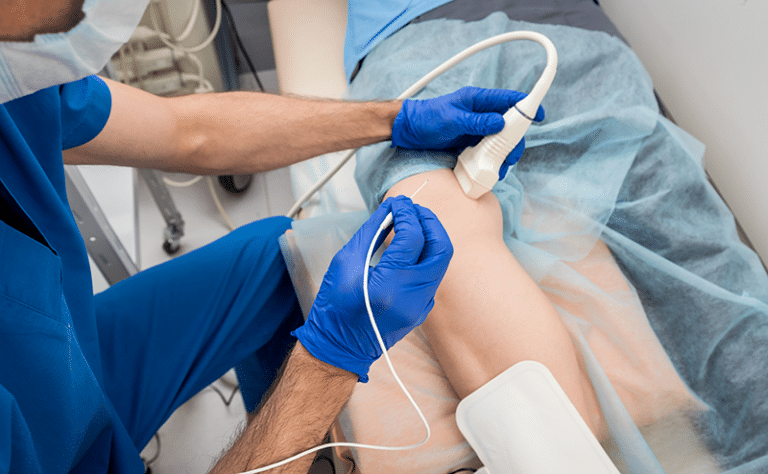
Living with neuropathy can be both debilitating and frustrating. It affects millions worldwide, causing numbness, tingling, and pain in the hands, feet, and other body parts. It can significantly impact one’s quality of life and daily functioning.
Many individuals with neuropathy struggle to find reliable medical interventions that can provide them with relief and improve their overall well-being.
At Momentum Medical, we understand the challenges faced by those with neuropathy. We are dedicated to helping you navigate the world of medical interventions. We will look into various treatment options, from medication to alternative therapies, providing you with the information you need to make informed decisions about your health.
Say goodbye to the limitations of neuropathy and retake control of your life with our assistance.
While some cases of neuropathy can be managed with lifestyle changes and home remedies, certain types of neuropathy require medical interventions for effective treatment.
Some of the most common types of neuropathy that may require medical interventions are:
Neuropathy is a condition that affects the nerves, causing pain, numbness, and tingling sensations in the affected areas. It can be a debilitating condition that significantly impacts a person’s quality of life.
Fortunately, several medical interventions are available to help manage neuropathy symptoms and improve overall well-being. Let’s explore some of the common medical interventions for neuropathy.
In severe cases, surgery may be considered a last resort when other interventions have failed to provide relief.
Surgical options for neuropathy include nerve decompression, where the affected nerve is released from surrounding tissues, or nerve repair, where damaged nerves are repaired or replaced with healthy ones.
These types of procedures are becoming increasingly popular in the field of medical interventions for neuropathy. These procedures involve using small incisions and advanced technology to treat nerve damage and relieve pain.
One example is nerve decompression surgery, where a surgeon releases pressure on compressed nerves, causing neuropathy symptoms.
Another option is the use of radiofrequency ablation, where high-frequency electrical currents are used to heat and destroy damaged nerves.
These minimally invasive procedures offer several benefits, including shorter recovery times, reduced risks of complications, and less post-operative pain. They are a promising option for individuals seeking effective and less invasive treatments for neuropathy.
This treatment involves using electrical impulses to stimulate the nerves and provide relief. Here are the different types of neurostimulation therapies that are commonly used in the medical field for neuropathy:
TENS is one of the most common neurostimulation therapies used for neuropathy. It involves using a small, portable device that delivers low-voltage electrical currents to the affected area through electrode patches on the skin.
These electrical currents help disrupt the pain signals sent to the brain, providing temporary pain relief.
PNS is a more invasive form of neurostimulation therapy that involves the implantation of electrodes near the affected nerves. These electrodes are connected to a small generator that delivers nerve electrical impulses.
PNS can relieve long-term pain by interrupting the pain signals before they reach the brain. This therapy is typically recommended for individuals with severe and chronic neuropathy who have not responded well to other treatment options.
SCS is another type of neurostimulation therapy that involves the implantation of electrodes near the spinal cord. Like PNS, these electrodes are connected to a generator that delivers electrical impulses.
However, the target area is the spinal cord rather than the peripheral nerves. By stimulating the spinal cord, SCS can help alleviate pain and improve function in individuals with neuropathy.
It is often used for conditions such as diabetic neuropathy or complex regional pain syndrome.
DBS is a neurostimulation therapy that is primarily used for neurological conditions such as Parkinson’s disease or essential tremor. However, it has also shown promise for treating neuropathy.
DBS involves the implantation of electrodes deep within the brain, which are connected to a generator.
The electrical impulses delivered by DBS can help modulate abnormal brain activity and reduce neuropathic pain. While DBS is a more invasive procedure, it can provide significant relief for individuals with severe and refractory neuropathy.
Intravenous therapies involve administering specific medications or nutrients directly into the bloodstream, bypassing the digestive system. This method allows for quicker absorption and potentially more effective results.
Some standard intravenous therapies for neuropathy include vitamin B12 injections, alpha-lipoic acid infusions, and glutathione drips. These therapies aim to provide relief from neuropathy symptoms and improve nerve function.
To effectively manage and treat neuropathy, a multidisciplinary approach is often necessary. This approach involves the collaboration of different healthcare professionals, such as neurologists, pain specialists, physical therapists, and psychologists, to provide comprehensive care.
Each discipline brings unique expertise and treatment modalities to address the different aspects of neuropathy, including pain management, nerve regeneration, physical rehabilitation, and psychological support.
By combining these approaches, patients with neuropathy can receive holistic and individualized care that maximizes their chances of improvement and enhances their overall quality of life.
Momentum Medical understands the significance of early diagnosis and comprehensive care for neuropathy. By emphasizing the importance of early diagnosis, they aim to ensure that individuals receive prompt treatment and support.
By providing comprehensive care, Momentum Medical recognizes the need for a holistic approach that addresses the immediate symptoms and the underlying causes of neuropathy.
Through our expertise and dedication to patient well-being, we strive to educate and empower individuals to understand the importance of proactive healthcare for neuropathy. Contact us today for more information or to book a consultation.
Serving Volusia, Flagler, Orange, Osceola, Hillsborough, Pasco, Pinellas, and Seminole county patients with back pain conditions, sports injury, work injury, headaches, lower back pain, auto accident injuries, neck pain and more.
Our staff can accommodate Spanish, French and Russian speaking patients. All other languages with enough notice we can schedule a translator.
Todas nuestras localizaciones tienen hablantes de español en el personal.
© 2024 Momentum Medical